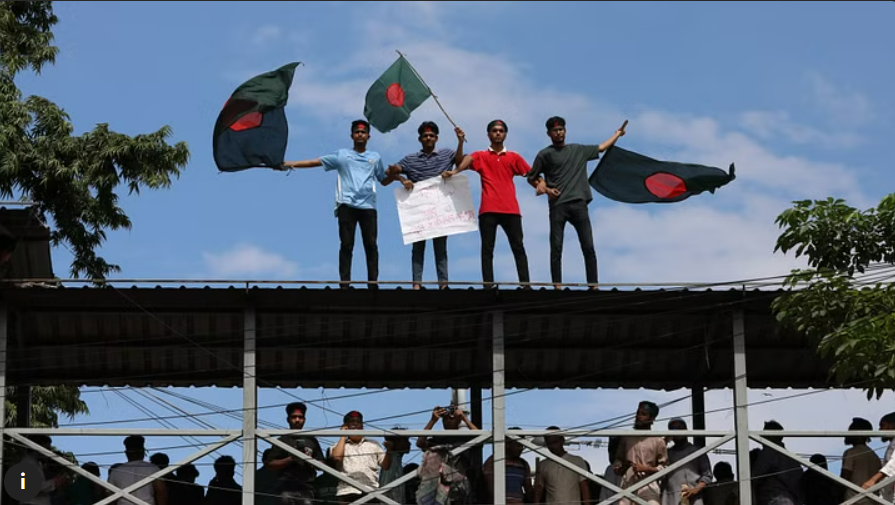The recent political crisis in Bangladesh, marked by Prime Minister Sheikh Hasina’s resignation and subsequent flight from the country amid massive protests, has cast a cloud of uncertainty over several strategic transborder connectivity projects crucial to India’s Northeast region.
The Bangladesh Army’s takeover and announcement of an impending interim government have further complicated the situation. Under Sheikh Hasina’s regime, bilateral relations between India and Bangladesh had deepened significantly, leading to unprecedented cooperation in connectivity initiatives. Bangladesh had allowed India to use its inland waterways, seaports, and railways to connect the Northeast with the rest of India via shorter, more efficient routes.
These projects are vital for the region, promising to drastically reduce travel times and distances, thereby facilitating faster economic growth. Some key projects completed in the past year include the Akhaura-Agartala cross-border rail link, the sixth India-Bangladesh cross-border rail link, and cargo facilities for the Northeast through Khulna-Mongla port.
The successful operation of the world’s longest river cruise from Varanasi to Dibrugarh via the Indo-Bangla Protocol (IBP) route demonstrated the viability of connecting India’s National Waterways 1 and 2 through Bangladesh. However, the ongoing political turmoil raises questions about the future of these initiatives. The interim government’s approach towards existing agreements and projects will be crucial. It is in the best interest of both nations to ensure continuity in cross-border connectivity projects, regardless of regime change.
These projects offer significant economic benefits to Bangladesh, including revenue generation and employment opportunities, which could help address one of the root causes of the current unrest – rising unemployment. India’s pragmatic approach of describing the protests as Bangladesh’s “internal matters” is commendable. However, the situation remains volatile, with reports of violence and looting underscoring the gravity of the crisis.
The uncertainty in Bangladesh, coupled with the ongoing political turbulence in Myanmar, poses significant challenges to India’s Act East and Neighbourhood policies. Key projects in Myanmar, such as the Kaladan Multimodal Transit Transport Project and the Trilateral Highway Project, have already faced delays due to political instability. These connectivity projects through Bangladesh and Myanmar are not just economically important but also strategically crucial.
They provide alternate routes to connect the Northeast with the rest of India, reducing dependence on the vulnerable Siliguri Corridor. As India navigates this complex geopolitical landscape, it must remain vigilant against foreign forces that might attempt to exploit the fluid situation in Bangladesh to undermine bilateral and multilateral cooperation in the region.
The swift restoration of peace and democracy in Bangladesh is paramount. It would not only end uncertainties over crucial connectivity projects but also contribute to regional stability and prosperity. As the situation unfolds, India must continue its diplomatic efforts to support a peaceful resolution while safeguarding its strategic interests in the region.




